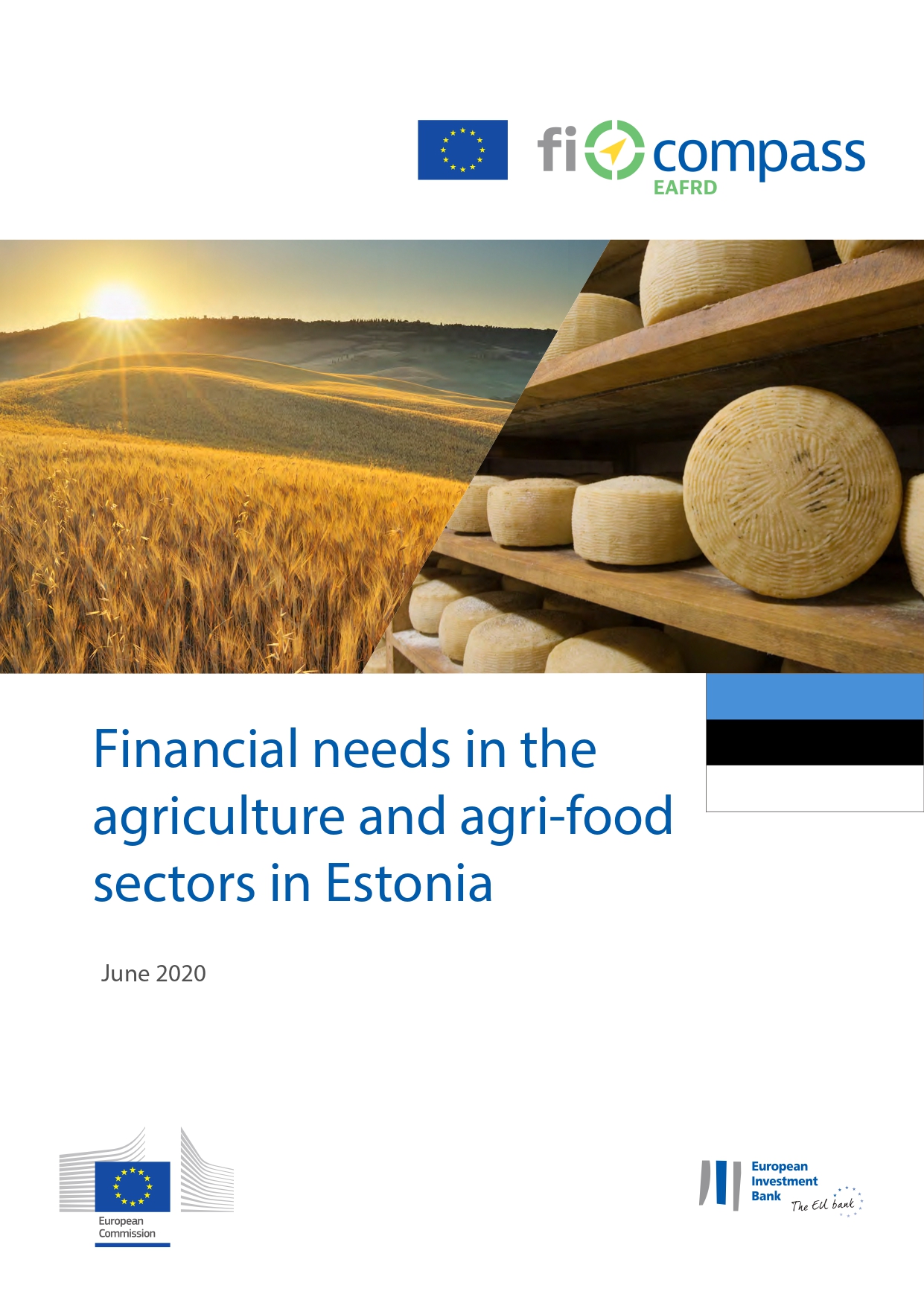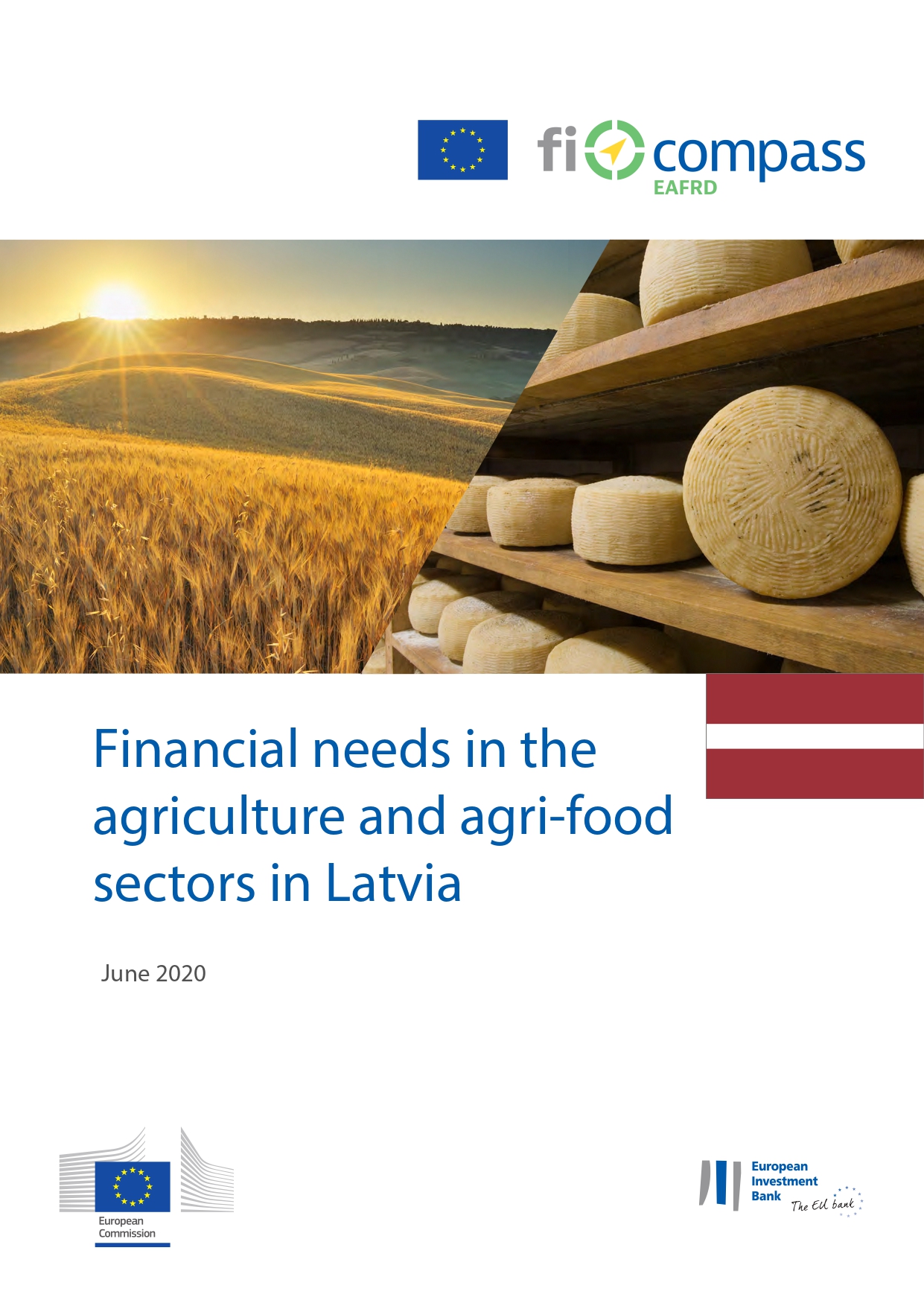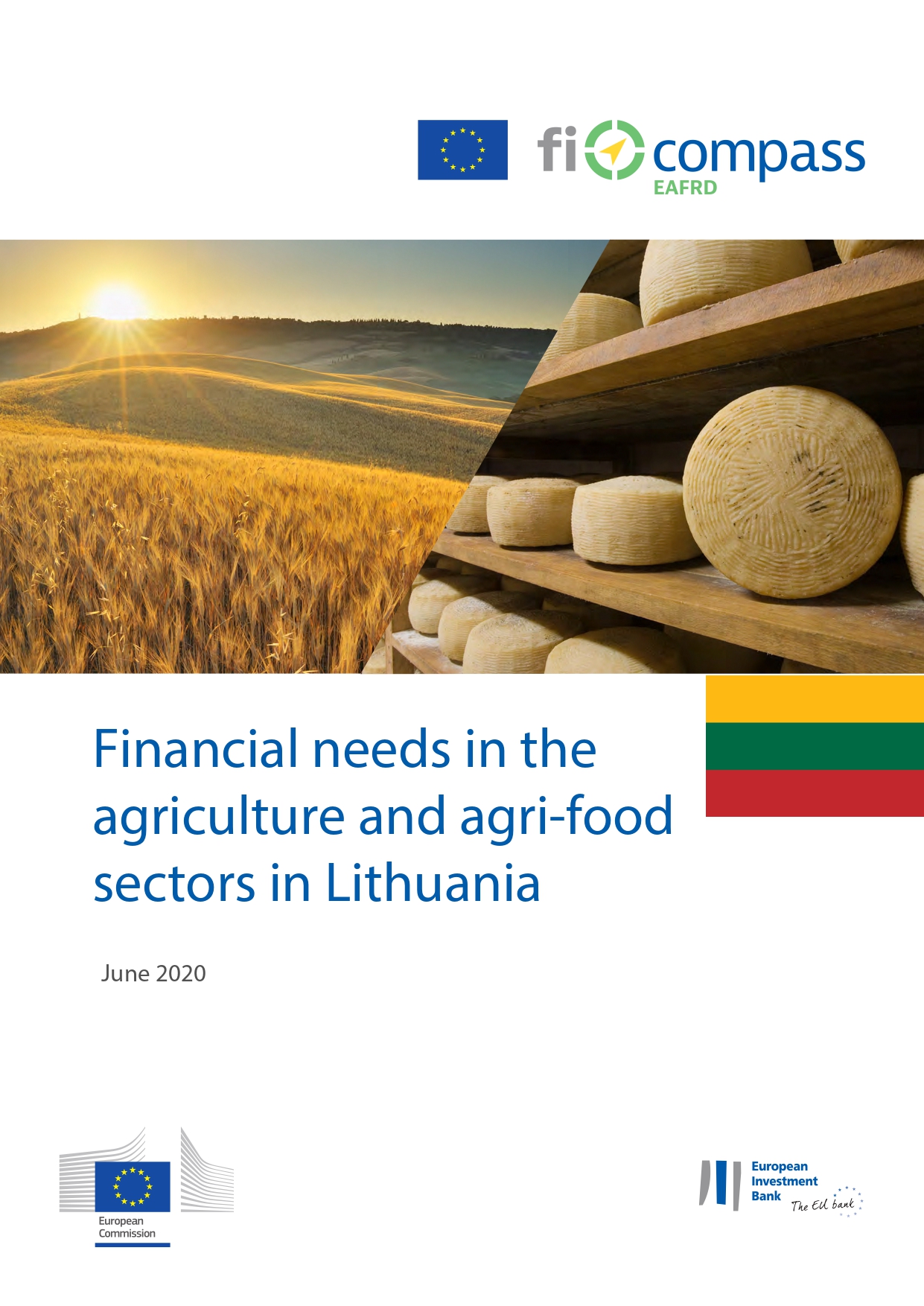The European Commission – Directorate-General for Agriculture and Rural Development (DG AGRI) in partnership with the European Investment Bank (EIB) organised on 16 September 2020 the webinar on ‘Financial needs in the agriculture and agri-food sectors in the Baltic countries’. Key objective of the webinar was to shed light on the financial environment in which farmers and processors operate in the Baltic countries: Estonia, Latvia and Lithuania. Over 100 participants from managing authorities, financial intermediaries, EU institutions and stakeholders from the agricultural and agri-food sectors joined the webinar.
Мoderated by Bruno Robino, Head of fi-compass, EIB, the webinar was opened by Michael Pielke, Head of Unit, DG AGRI, European Commission, highlighting the importance for EAFRD managing authorities to plan and programme the use of financial instruments (FIs) in their CAP Strategic Plans for 2021-2027. With a view to support managing authorities in their programming exercise, fi-compass has recently published a study on financial needs in the agriculture and agri-food sectors in 24 EU Member States, which, as indicated by Frank Lee, Head of Financial Instruments Advisory Divsion, EIB, also aims to raise awareness on the power of financial instruments to complement loans, guarantees and various financial schemes available in response to the financial gaps in the agriculture and agri-food sectors.
Why financial instruments under the EAFRD in the post-2020? Michael Pielke highlighted their potential in different sectors of rural development as well as their novelties including, inter alia, the simplification of rules with regards to eligibility, the simplified ex-ante assessment process and the new combination possibilities of grants and FIs. Additional EU instruments are also available to address existing financial gap in the agriculture and agri-food sectors in Member States namely InvestEU, the Just Transition Mechanism and the Recovery and Resilience Facility, which could be used as a complement to EAFRD FIs.
Marko Gorban, Deputy Secretary General from Agricultural and Rural Life Policies, Estonia, presented the state of play of financial instruments (FI) implementation in the current programming period. FIs showed a positive impact on jobs in rural areas, their implementation was straightforward and quick and their revolving effect resulted in the availability of additional financial resource. In preparation of the post 2020 CAP Strategic plan, Estonian EAFRD Managing authority recently concluded its ex-ante assessment and building on the positive experiences with 2014-2020 FIs is analysing the possibilities for programming new FIs.
To ensure sustainable financing for the agricultural and agri-food sectors in the next programming period, Mario Guido, Financial Instruments Advisor, EIB, presented the findings from the fi-compass study ‘Financial needs in the agriculture and agri-food sectors in Estonia’. The financing gap in Estonia in agriculture is estimated between EUR 28 and EUR 117 million, with 44% represented by young farmers, whereas the estimation is for EUR 169 million in the agri-food sector affecting mainly small enterprises. The main gap drivers in agriculture and agri-food sectors are the lack of collateral, lack of financial awareness from the side of final recipients, limited availability from the supply side (banks) to offer loans at favourable terms, and the sectors’ high investment risk perceptions for banks.
Julija Travina, Senior Expert Rural Development Funds Support Divison, Ministry of Agriculture, Latvia, presented the progress with the preparation of the post 2020 Cap Strategic plan and the possible use of FI based on the first insights from the ex-ante assessment underway. Existing national financial instruments and subsidy schemes available for the Latvian agricultural sector were mentioned, as well as their state of play and main features. In addition, using the flexibilities offered in the post-2020 CAP legal framework for EAFRD FIs, the MA is exploring the options to set-up a financial instrument with capital rebate element to better address final recipients needs.
Miglena Dobreva, Financial Instruments Advisor, EIB, presented the findings from the fi-compass study ‘Financial needs in the agriculture and agri-food sectors in Latvia’. The financing gap in Latvia in agriculture is estimated between EUR 17 and EUR 32 million, with 55% represented by small-sized farms, whereas the estimation is EUR 15 million in the agri-food sector affecting mainly small enterprises, related mostly to medium and long-term investment loans. Among the main gap drivers in agriculture and agri-food sectors are the lack of collateral and own equity, lack of financial knowledge and credit history from the side of final recipients, limited availability from the supply side (banks) to propose more targeted offer to agriculture and agri-food sectors in Latvia, especially for young farmers and start-ups.
Guillaume Pierre, Research Expert, Ecorys, presented the main findings from the fi-compass study ‘Financial needs in the agriculture and agri-food sectors in Lithuania’. The financing gap in Lithuania in agriculture is estimated between EUR 962 million and EUR 2.2 billion (largest gap within the Baltic countries), with 30% referring to young farmers, whereas the estimation is EUR 20 million in the agri-food sector affecting mainly small enterprises. In terms of financial products, most demanded are loans with medium to long-term maturities. The main gap drivers in agriculture and agri-food sectors are the lack of collateral, lack of financial awareness and credit history from the side of final recipients and the cost of long-term loans. Findings from the analysis show that EAFRD financial instruments could play an important role in better addressing financing needs in the two sectors, including possibilities to offer technical support to develop business plans and improve financial management of farmers.
Michael Pielke closed the webinar by underlining that these real case examples, as well as the presentations from the Study on the financial gaps in the agriculture and agri-food sectors in the Baltic countries, demonstrate how FIs supported by the EAFRD could tackle the current financial difficulties and how they could encourage banks and private investors to co-invest and increase their engagement in the agriculture and agri-food sectors.
![]() presentation
presentation
![]() audio
audio
![]() video
video
![]() case study
case study
The audio in the video files is in original language of the speakers. The English interpretation is available as audio files.




